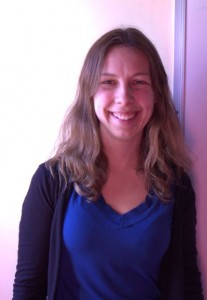The Community in HOD
We all know that Vanderbilt is one of the nation’s greatest learning institutions. It’s a hub of intellectual development. One reason why I love coming to school here is that in my classes, I not only gain cognitive fact, but they teach me how to nullify the contradiction between learning and living.
Of the four different tracks in Human and Organizational Development (HOD), I am a part of the Community Leadership and Development concentration. Here are some poignant lessons in multicultural awareness which I learned from a guest lecturer Amie Thurber, who works for the National Coalition Building Institute, whose mission is to create “a more just and inclusive society by developing leaders who work to end mistreatment, correct systemic inequalities and strengthen community cohesion.”

1. Perseverance bears fruit. Thurber told us a story about a woman who grew up in a culture where her role was to watch and not speak. This woman continued to come to this training center week after week, and she never took on any position nor rose to speak. This continued for two years, until Thurber one day stated that they would be going to this woman’s reservation and asked this woman to co-lead with her. This woman finally said yes, and the girls who came to their training session connected with this woman, who overnight developed into a facilitator, role model, and leader. Their story caused me to consider the value of long-term investments. Thurber continued to pour into in this person even though there hadn’t been any sign of change, but how perfectly this woman fulfilled a leadership role in her own reservation. Only she could have related with those girls so uniquely.
2. Seek to understand cultural context by taking intention off the table and instead talk about impact. Another story Thurber shared with us was about how she and a co-worker led a training session for a group, comprised of a mix of African Americans and Caucasians. In that session, she told them about a community of Native Americans whose high school had an annual run to symbolize their old tradition. Halfway through this marathon, they would have to run through a street where some rather racist Caucasians would call them names, such as “prairie n—–.” Now when Thurber told that portion of the story, people became offended. Even though that insult was not directed to them, the African Americans in the room came from a different historical context and that word affected them differently and it hurt. This is where the intention didn’t matter anymore, and it was instead a case of unintentional racism. Thurber could not become defensive because the impact of her words that were insulting. Thurber apologized and learned that it was not acceptable to say that word regardless of the story. My takeaway was that I need to…
3. Become aware. We, myself included, are comfortable in our environments and do not often understand what we take for granted. For example, I can choose a flesh-colored Band-Aid and have it more-or-less match the color of my skin, or I could apply for a job without co-workers suspecting that I got it because of my race. If I were in a room of Hispanics and Caucasians and there was one Hispanic leader and one Caucasian leader, I might be prone to think that the Caucasian leader was smarter and more capable because I could understand him or her, but that might not be the case at all. Rather, even though the syntax is cognitively hard to understand, I must seek to step out of my own cultural context to relate and connect well.
4. Constantly pursue growth. In a sense, we are never going to stop being students. Thurber said that it is a real challenge for her as a Caucasian person to be a director in a multi-cultural leadership position because in that role, people look up to her expect her to be an expert. She stated that she is a student of racism forever and is privileged to keep understanding. There are great rewards to the richness found in being invited into a family that sees, looks, and loves in a different way.

Putting the principles that we learn into practice is an old saying but very valid. My suitemates and I are currently trying to coordinate schedules to find a date where we can continue building relationships and dinner with the Malaysian girls down our hall. I’m excited for these opportunities that Vanderbilt provides in establishing relationships with a diverse population of people!